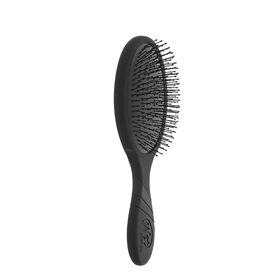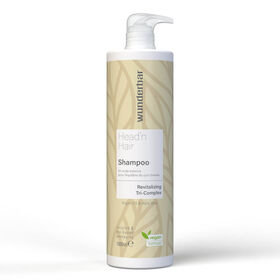Menopause & Your Hair: What You Need to Know
For many women, the menopause transition brings changes that extend beyond hot flushes and mood shifts. One of the most common yet least discussed symptoms is changes to hair. From noticeable thinning to shifts in texture and appearance, these changes can feel unsettling and often impact self-confidence.
As hormone levels fluctuate and eventually decline during this natural life stage, your hair follicles respond to these biological shifts. This can mean hair that feels drier, looks less full, or doesn’t behave the way it once did. While these changes can be surprising, they are both common and manageable with the right care.
How common is menopause-related hair thinning?
The reality is, hair thinning is incredibly common. A study from L’Oréal found that one in three UK women claim to experience hair loss – a figure echoed by Harvard Medical School’s research. By age 50, around 40% of women notice visible hair thinning, with prevalence increasing through menopause.
Menopause doesn’t cause hair loss overnight instead, it often happens gradually. You might first spot a wider parting, a ponytail that feels less thick, or more hair than usual on your hairbrush.
Why does menopause hair loss happen?
During perimenopause and menopause, levels of oestrogen and progesterone drop. These hormones play a key role in keeping hair in its growth phase (anagen) for longer. As their levels decline:
- Hair spends less time growing and more time in the resting phase.
- Strands may become thinner and shorter.
- Partings may appear wider.
- The scalp can become drier and more sensitive.
Additionally, as oestrogen declines, the relative activity of androgens (male hormones) increases. This can cause miniaturisation of hair follicles, a hallmark of female-pattern hair thinning.
Caring for your hair through menopause
While you can’t stop the hormonal changes of menopause, you can take steps to support scalp health, encourage fuller-looking hair, and boost your confidence.
- Choose targeted haircare
- Try a thickening system
- Support hair from within
- Be gentle
- Massage your scalp
Our Recommendations
Menopause is a natural stage of life, but its impact on hair can be frustrating. Remember you’re far from alone. With the right care routine, including targeted products and supportive lifestyle changes, it is possible to maintain healthy, beautiful hair you feel confident in.
At Sally Beauty, we’re here to help you navigate every stage of your hair journey – with expert advice, professional-quality products, and solutions tailored to your needs.









